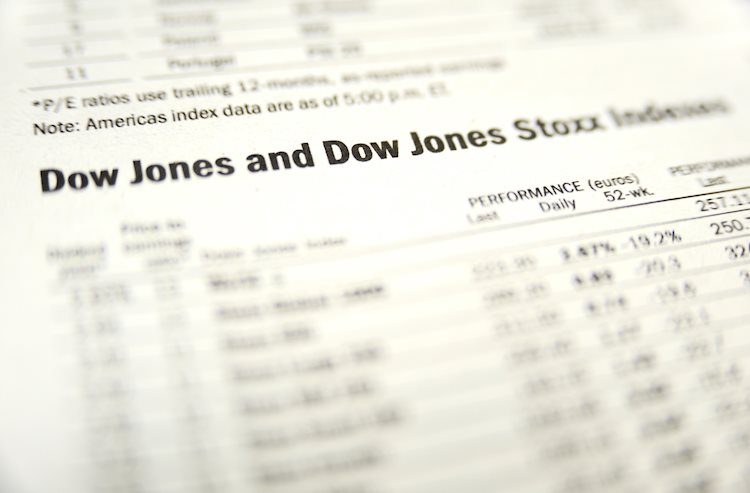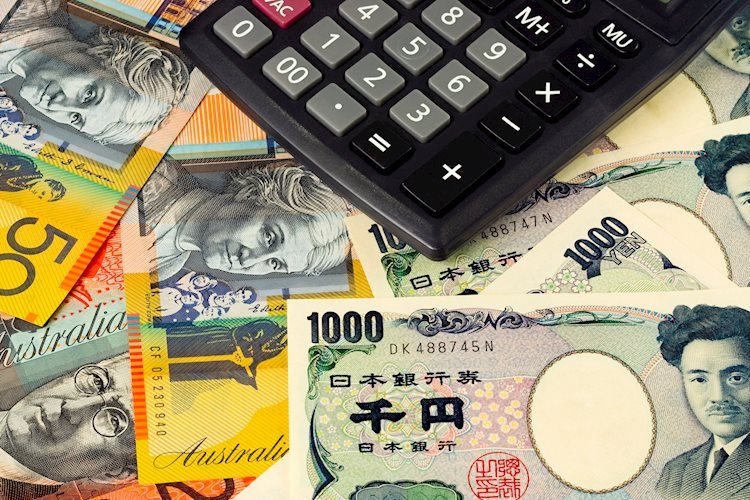A bill is currently in the Chamber of Deputies that establishes a ceiling of 17% in the collection of ICMS on fuel, energy, telecommunications and transport. ICMS is the Tax on Operations relating to the Circulation of Goods and on Provision of Interstate and Intermunicipal Transport and Communication Services.
If the PL is approved, these categories would be considered essential goods. The tax is state and levied in all units of the federation.
The president of the Chamber, Arthur Lira (PP-AL), decided to take the project authored by deputy Danilo Forte (União Brasil-CE) to the plenary. Lira defended the proposal, saying it would help bring down fuel prices, which have seen a series of highs this year.
On Tuesday (24), federal deputies insisted that the states receive some form of financial compensation from the federal government for the eventual approval of the ICMS ceiling. If the project goes ahead, the tax collection by states would fall. According to calculations by stockbroker XP, the loss would be around R$ 60 billion.
THE CNN asked the pre-candidates for the Presidency what they think about the proposed change in the collection of ICMS.
Check out the answers below:
Luiz Inácio Lula da Silva (PT):
Former President Lula is still working on his government plan, which will be presented to the TSE on the scheduled date.
Jair Bolsonaro (PL):
The president has not responded at the time of publication.
Ciro Gomes (PDT):
The reduction of the heavy Brazilian tax burden is urgent and necessary. However, this issue of ICMS on fuel needs to be treated seriously and intelligently so that we do not give the Brazilian people the false idea that this will be able to reduce the price of fuel at pumps, for the final consumer. This is a fallacy, since taxes are not the main cause of the increase in fuel prices, but the criminal pricing policy of Petrobras. Proof of this is that, in August 2021, the federal government reduced PIS/Cofins with the same false argument that it would reduce the price of diesel oil. Since then, the price has not dropped a single cent, on the contrary, it has suffered successive readjustments and there is already a forecast of a new increase of 11.2% for June.
We need to make the Brazilian people understand that the high price of gasoline and diesel is the result of two factors, the first of which was the privatization of a large part of Petrobras carried out by former President Lula, in 2010, when he sold billions of shares of the company in São Paulo Stock Exchange for large banks and foreign companies. Allied to this, Petrobras’ criminal policy instituted by former president Michel Temer, which established international parity, dollarizing fuel prices to meet the interests of these foreign investors. The second factor is that Brazilian refineries were paralyzed, investments in refining were suspended to import gasoline, diesel oil, aviation kerosene and gas, in dollars.
And Bolsonaro has not done and is not doing anything to change this situation, he is just blaming one and the other, insulting people’s intelligence as if the problem was the ICMS of the states, which has always been the same. With the approval of this project, Bolsonaro will withdraw R$ 80 billion from states and municipalities, resources that should go to health, education, social assistance and, instead, will pay dividends to the already millionaire banks and investment funds. pension through Petrobras. It is a true affront to the millions of Brazilians who are starving and dying victims of the genocidal policy of the Bolsonaro government.
In fact, what needs to be done in relation to fuels is to charge again based on production cost, plus fixed assets and plus profit, in line with the big oil companies in the world. This is how the price of fuel in Brazil should be formed.
André Janones (Avant):
The pre-candidate has not responded at the time of publication.
Simone Tebet (MDB):
The pre-candidate did not respond at the time of publication.
Luciano Bivar (Union Brazil):
The creation of a ceiling of 17% in the collection of ICMS on fuels can generate a reduction in the price for the consumer of up to 12%, according to the author of the proposal, Deputy Danilo Forte, from União Brasil. At a time when Brazilians suffer from such expensive gasoline, such an initiative is very welcome.
We know that the states will lose revenue, but the state funds are in surplus and the Union will be able to compensate them for the losses. In my view, this should be a temporary measure. What the country really needs is an effective tax reform, which promotes the simplification of taxes and, consequently, the reduction of prices of products and services in general. The creation of the IUF (Imposto Único Federal) was designed precisely for this purpose. Our proposal eliminates 11 federal taxes and replaces them with just one, at a much lower rate.
Felipe d’Avila (New):
Despite being in favor of reducing taxes, you cannot do things without responsibility. The estimate is that there will be a reduction of R$ 70 billion per year in revenue for states and municipalities. This can jeopardize the provision of essential public services, in addition to aggravating the fiscal issue, putting pressure on interest rates and the recovery of the economy. The government has to create the Stabilization Fund with resources from oil royalties and sharing, to smooth out fluctuations in fuel prices. Enough of the demagoguery. It’s time to govern seriously.
Jose Maria Eymael (DC):
Christian Democracy (DC), through its national president, José Maria Eymael, when he was a constituent federal deputy, approved a proposal contained in item III of paragraph 2 of article 155 of the Federal Constitution.
“Art. 155. It is incumbent upon the States and the Federal District to impose taxes on:
…………
II – operations related to the circulation of goods and on the provision of interstate and intercity transport and communication services, even if the operations and services begin abroad;
…………………..
§2 The tax provided for in item II shall comply with the following:
……………………
III – It may be selective, depending on the essentiality of the goods and services.
According to the Federal Constitution, therefore, the establishment of a ceiling of 17% in the collection of ICMS, is under the constitutional rule that ensures the selectivity of the tax according to the essentiality of goods and services, as is the case of the Bill under study. .
Effectively, the bill under analysis, by defining the goods and services it refers to as essential, extends over these products and services the protective mantle of the Constitution of the Federative Republic of Brazil.
As can be seen in the response, the contribution of Christian Democracy in the National Constituent Assembly in protecting the taxpayer is increasingly evident.
It is recommended, therefore, the wide dissemination of the position of Christian Democracy in defense of the taxpayer, based on its performance in the Constituent Assembly, as author of item III of paragraph 2 of art. 155 of the Federal Constitution.
Leonardo Pericles (UP):
The pre-candidate has not responded at the time of publication.
Pablo Marcal (Pros):
The national tax system is extremely complex and cumbersome, so it needs to be tackled in a profound way to unlock the nation and enable growth. Obviously, the tax on fuel and energy ICMS is only part of the problem and I would say that it is almost insignificant compared to the need to reform the entire system.
However, considering the escalation of fuel and energy prices directly affecting the poorest population, as these prices strongly impact the basic food basket, I understand that limiting the ICMS rate will bring relief to the taxpayer. It is undeniable that the limitation will directly attack prices and fight the fiscal war, which will bring security to the nation that can no longer bear the main “tax” of the population, inflation. In fact, inflation is the worst of all “taxes” because it mainly affects the most needy.
Sofia Manzano (PCB):
Since last year, a bill has been pending in the Federal Chamber that intends to establish a ceiling of 17% on the ICMS rate for fuel, energy, telecommunications and transport, classifying these products as essential goods.
Look, this is an absolutely opportunistic project because at the same time that these goods and products are essential for the development project, the government itself that presents this project also presents the Eletrobras privatization project that will disrupt and increase the price of electricity.
So, we see that projects of this type are just electoral, opportunistic and are not within a more structural thinking of the way in which taxes are taxed and which goods and services are really essential for development and to fight inflation; for the population to have an improvement in their well-being, in their living conditions.
During our pre-campaign, we will discuss and debate both the price of products such as energy, transport and fuel, as well as the tax issue. In fact, ICMS is a regressive tax because it falls on the income of the poorest population.
However, it is the largest tax collector in the states and messing with taxation without thinking about the tax structure as a whole is a foolhardy thing to do. This has to be done in a very responsible way and not by a government that has no project at all, on the contrary, the only project it has is to remain in power to continue with the destruction of the country as we have seen in the last measures that were presented in the National Congress.
Vera Lucia (PSTU):
In Brazil, a lot of taxes are actually paid, but those who pay are workers, the poor and small businesses. The rich and the big companies pay very little, evade the hard way or use tricks to reduce their tax burden. Instead of taxing consumption, we propose taxing the profits and income of billionaires as a result of the exploitation of workers.
On the price of fuel, there is a lie repeated by many liberals and by Bolsonaro that the price of gasoline is high because of taxes. Is not true. It is high because of the increasing privatization of Petrobras to international shareholders, who to please them the company has to sell expensive fuel to guarantee the exorbitant profits of its billionaire shareholders.
The cost of each barrel is US$ 5 and the sale is US$ 98. More than 100 billion in dividends were distributed to its shareholders. It’s the workers paying dearly to pay the bill of the rich. A complete absurdity.
We propose that Petrobras stop the policy of price parity to the dollar and also that it be renationalized so that it can guarantee cheap fuels. The cost of producing and refining a liter of fuel at Petrobras was R$0.72 cents in 2021. If it charged a 30% profit margin, a liter of gasoline would be sold at the gas station for R$2.40. Being renationalized, these profits instead of going to the rich could be used to further modernize Petrobras, increase its refining capacity and invest in new renewable energy sources to guarantee a minimum of energy sovereignty for Brazil.
Photos – The pre-candidates for the presidency
Source: CNN Brasil
I am Sophia william, author of World Stock Market. I have a degree in journalism from the University of Missouri and I have worked as a reporter for several news websites. I have a passion for writing and informing people about the latest news and events happening in the world. I strive to be accurate and unbiased in my reporting, and I hope to provide readers with valuable information that they can use to make informed decisions.






